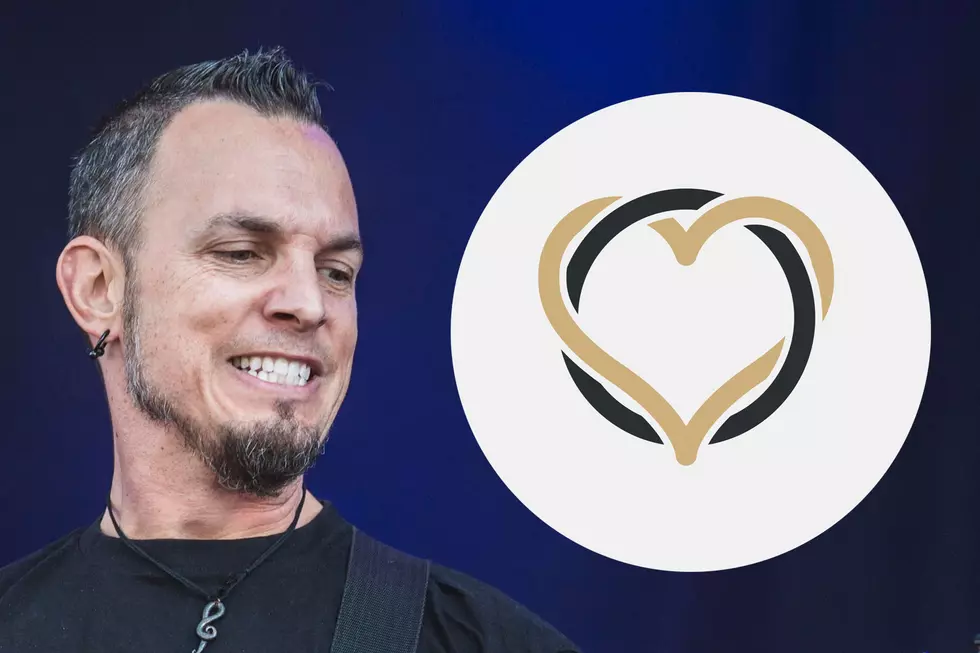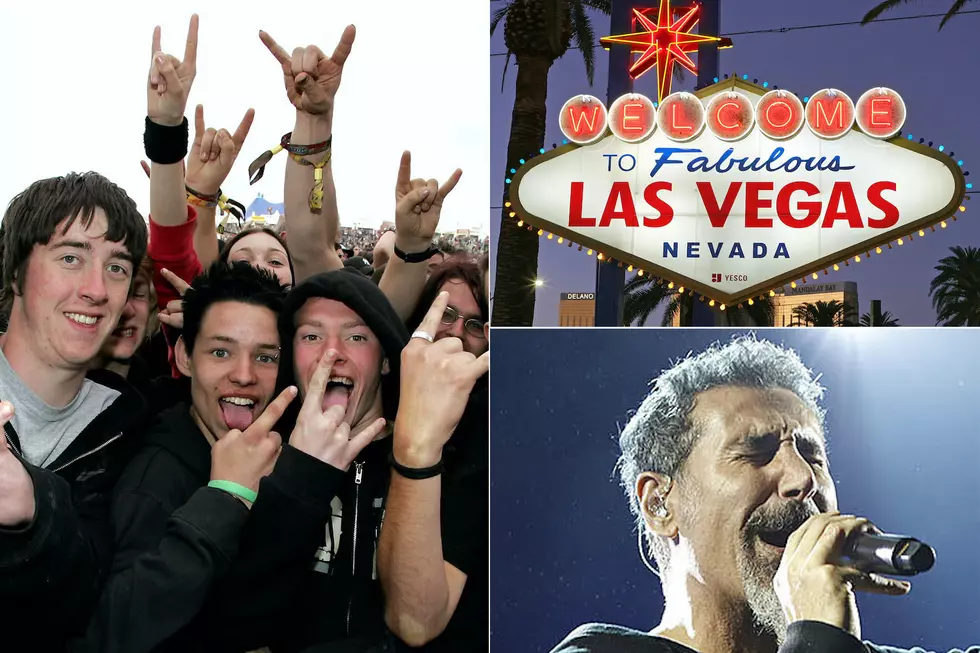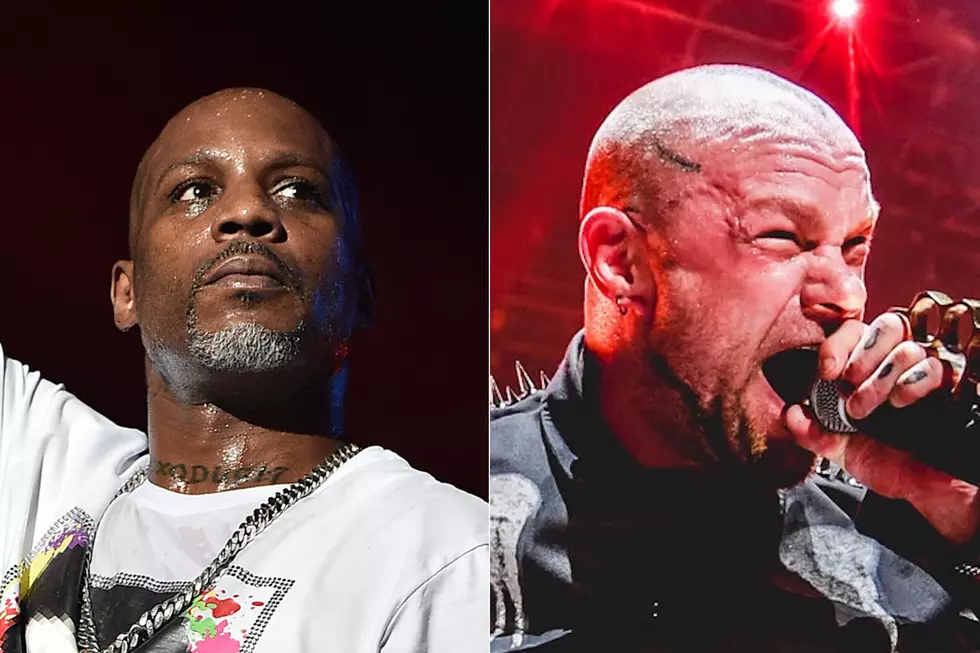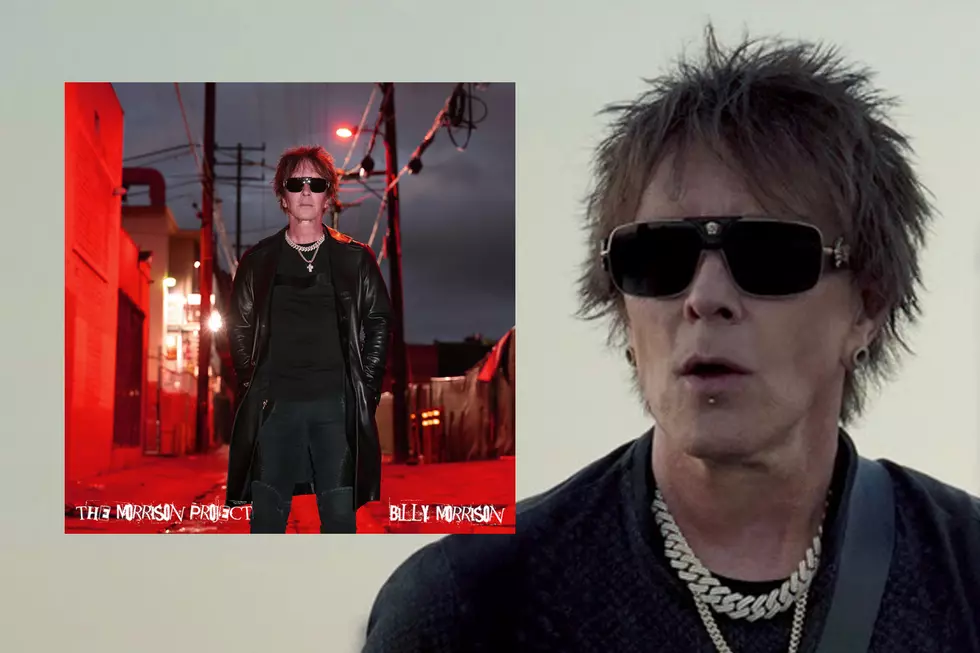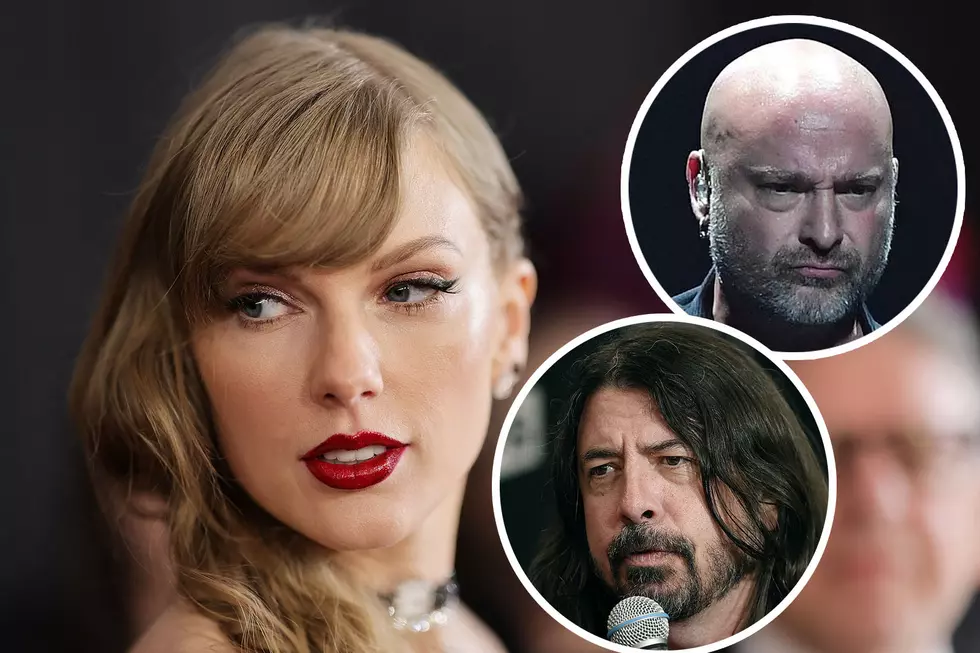
Vangough, ‘Warpaint’ – Exclusive Album Stream + Interview
Power trios are impressive as is, but when just three musicians are able to craft a progressive album like Vangough have with their fifth full length offering, Warpaint, it's downright jaw-dropping!
The Oklahoma-based prog metal outfit have partnered with Loudwire to bring you the exclusive advance stream of the full record, so put on your headphones, crank up your speakers or whatever you've got and prepare for a immersive journey into ethereal soundscapes, jarring heaviness and contemplative themes of life, death and anguish in the player below and check out our interview with vocalist / guitarist Clay Withrow as he goes in depth on everything you need to know about Warpaint.
Metalheads and prog fiends will be the first to point out the similarities to Opeth's lighter passages and riffing heft as well as some of Control Denied's (Chuck Schuldiner of Death fame) most powerful moments, but don't confuse Vangough for sheepish imitation. Influences can't be ignored, but the trio certainly have their own identity across tracks like the slithering "Dust" and the emotional grip and weighty emptiness of "Till Nothing's Left."
Warpaint will be released on March 17 and fans can place their pre-orders at Vangough's Bandcamp page or through iTunes.
Vangough, Warpaint Full Album Stream
Interview With Vangough's Clay Withrow
Previous Vangough albums have run over 70 minutes with more than a dozen tracks. Was there a different approach to the writing and end goal this time around and what's the sweet spot for album length for you when listening to an album?
Our last three albums had a very maximalist mentality of throwing everything in but the kitchen sink. A big reason for that was me just feeling like there was an expectation to fill every second of a CD when making an album. But I will say that we entertained the idea of leaving one or two tracks off of Between the Madness, but ultimately ended up featuring everything we recorded.
Once we started writing material for this new one, which was kind of off and on throughout 2015, I think we had determined that our method of stuffing a CD to max capacity with music just wasn’t yielding any measurable benefit. I remember telling the guys in the band that we should absolutely keep the track count under 10 songs for the new album. That number eventually got lower and lower as we worked away revising the demos. It was almost eight tracks but I was feeling overwhelmed just trying to finish the seven.
Working with fewer songs also provided us more room to focus the vision and themes on Warpaint. As one song came to life, we’d go back to make sure the other songs shared the same feel and vibe in a meaningful way.
Of course, cost played a big role in shortening the album length. Because we wanted Warpaint to be our best sounding album to date, our thought process was to put more of the budget into recording and mixing, so having fewer songs made that a feasible goal.
Personally I don’t have a fixed preference for album length. I’m usually listening to music when I’m in my car or at work. So for me it just has to be long enough to make a definitive statement and feel like there’s a discernible start, middle and conclusion. A lot of albums I’ve been listening to recently are under 60 minutes. Stuff like Meshuggah’s The Violent Sleep of Reason and some dark new wave bands I listen to like Gunship and The Midnight. They don’t feel too short to me. As long as they don't feel incomplete or overstay their welcome, I’m good with that.
There's an overarching theme of death / emptiness / despair on Warpaint. Were there any specific events that inspired the lyrical themes and what is the significance of the album's title? It's always interesting when an album doesn't have a title track.
Warpaint is heavily preoccupied with the theme of life and death, but not necessarily in the physical or literal sense. I came up with the concept and title of Warpaint shortly after we released our previous album, Between in the Madness, in 2013. Several incidents occurred at that time that helped shape the early vision of what it might look like. I remember feeling disappointed that Between the Madness just didn’t get the exposure I was expecting it would. I was also changing jobs from a music-related field to a corporate one, which felt like a small death in itself and one that filled me with a lot of anxieties about what that might mean for Vangough.
I was also reading a lot of essays and articles at the time regarding the increasing identify crisis spreading throughout much of the Western world and how it was quickly leading us down a toxic path of ideological, environmental and economic catastrophe. And it all goes back to the individual and their insistence to cling to a worldview, regardless of supported facts or reality because we tend to avoid or dismiss things that make us uncomfortable or are inconvenient.
Related to that, there’s a personal incentive driven by an economic imperative that we as individuals keep pushing forward because at the finish line we have an expectation that things will be great. The 'American Dream' for example is a popular narrative that persists throughout each generation yet is not easily defined. But it’s always been a celebrated characteristic of America’s national identify. So while these kinds of narratives are powerful and inspiring, they can also be misleading and dishonest.
Warpaint explores the death of such identities and what kind of toll did it take on the individual. At what point do we begin to realize that we may not actually achieve our goal, or worse, that we were just misleading ourselves in an effort to avoid reality? And while I’m sure many of us recognize the fact that the carrot dangling at the end of the stick is unobtainable, we suppress that reality because it’s uncomfortable.
Instead we brace ourselves for what is to come. Every day. Every week. Every year. And at the end when we’re too tired to keep fighting, we realize that we’re also too tired to actually play with our kids, too tired to make good on the things we said we'd do once we had the time, or worse, we realize that we no longer know what it’s like to live without a work life and what it feels like to play. We don’t know how to navigate this vessel without the mask of our identity driving us.
I found myself a victim of such a dream as an artist with hopes to turn my creative expression into a business. Yet while I was writing lyrics for Warpaint last year, I couldn’t help but feel the sense of the end as I reflected upon where Vangough might be headed if all our efforts to succeed failed. Like the worker and the illusive 'American Dream,' I’ve unwittingly tied my identity to Vangough. It’s my outlet for creative expression, my outlet for many things and I’m frightened of who I might be without that identify masking my vulnerabilities and insecurities.
Regarding the significance of the album title, Warpaint is face paint one applies before going to war. From a literal and historical perspective, how successful do you think such a ritual ultimately was? From a symbolic perspective framed in modern times, in what ways might we carry out this ritual every day? Does it serve to intimidate others and inspire bravery in the individual or does it serve to hide the inevitability of a war we will never win?
Did embarking on your first ever tours since Between the Madness change your approach to writing or playing music in any way?
Certainly going on tour with Pain of Salvation and then Fates Warning had a huge impact on our songwriting and playing. It felt like we were kind of a project band for the longest time and being on tour helped us find our center and solidify our identity. You can hear that on Warpaint. The songs matured. They were less preoccupied with acrobatics and more focused on arrangement. While we had written several demos for the album before the Fates Warning tour, they all changed dramatically afterwards. They became more restrained and confident.
Who is your favorite power trio?
That’s a tough question since most of the bands I listen to usually have four or more members. The Police are definitely one of my favorite power trios. I like both Muse and Primus a lot as well. I’m trying to imagine the ultimate power trio. Maybe early '90s-era Michael Bolton, Kenny G and Phil Collins. I’d listen to that. Goddamn, now I want to hear that. What would their band name be? It needs to be a name that conjures images of lonely suburban moms, velveteen heart-shaped pillows from Pier 1 and the waiting room at a dentist’s office. I’d call them Velvet Satin.
What do Vangough have planned for the rest of 2017?
We’re planning to start working on a small EP of cover songs for our Kickstarter backers while also looking for opportunities to tour, but I think our focus is on making sure Warpaint has some kind of measurable impact with listeners this year. We’ve always been in a difficult spot stuck between two genres, progressive metal and heavy metal. Not proggy enough for the core prog crowd and not heavy metal enough for a lot of metal fans. But the simple truth is we just love making music. We also love playing live and think we’re pretty damn good at it as many will attest to from our tour with Fates Warning.
So in an effort to put food on our table doing something we love and to keep this thing going, we humbly ask that anyone reading this to give us a listen on Spotify, YouTube, Bandcamp, anywhere! And if you dig what you hear then please help us spread the word. Add our songs to your Spotify playlist, share around with your metal-loving friends or upload your favorite songs to YouTube. We would love to be your next musical addiction.
More From Loudwire

